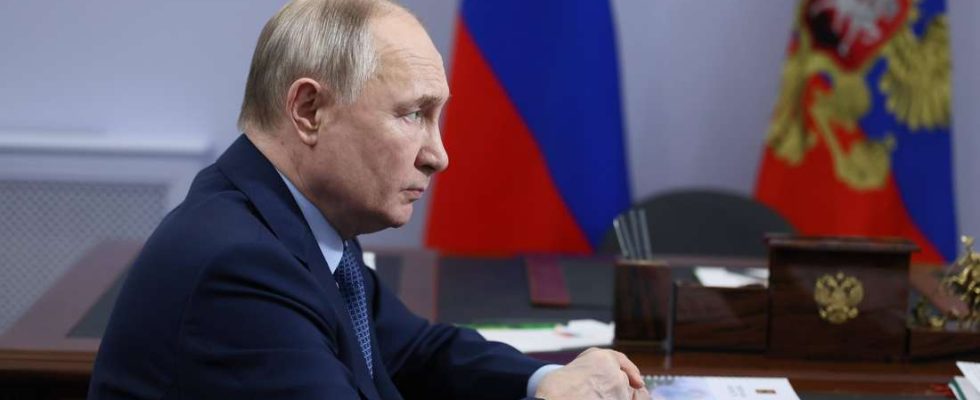Press
Islamists in Russia? What sounds like a Ukrainian operation to Russian President Putin is actually not unlikely.
Moscow – The Russian President Wladimir Putin was astonished by IS’s claim to the terrorist attack near Moscow. “Are radical and even terrorist organizations really interested in carrying out attacks? Russia “What today stands for a just solution to the escalating Middle East conflict?” he asked at the start of a meeting about potential follow-up measures among high-ranking security officials. “How can radical Islamists carry out such crimes in the holy month of Ramadan for all Muslims?”
IS subgroup quickly claimed responsibility for the attack on the Moscow concert hall
On the evening of March 22nd, some terrorists armed with Kalashnikov machine guns entered the Krokus City Hall concert hall northwest of Russia’s capital Moscow and opened fire. According to official Russian government figures, they killed at least 137 people. For Putin, the trail “logically” leads to Ukraine, although that is IS splinter group Islamic State Khorasan Province (ISKP) quickly confessed to the attack. Moscow had caught eleven terror suspects within a very short period of time. According to Russian state media, all suspected perpetrators had Tajik citizenship.
But how likely is a terrorist attack on Russia really? Afghanistan expert Ellinor Zeino believes it is credible that the ISKP is responsible for the attack. In an interview with ntv she explained, “That [die ISKP] It has also been known for years that it also has targets outside of Afghanistan in mind. Its potential has been very great for a long time. The only question was when it would happen.”
Russia is a logical victim for the ISKP terrorists
The attack on the Moscow Concert Hall follows the ISKP’s modus operandi, according to California State University history and global studies professor Ibrahim Al-Marashi. He refers in an essay for the Kyiv Post to the IS attack at a concert at the Paris nightclub Bataclan in 2015, in which 89 people died. There, too, terrorists fired Kalashnikov machine guns at the music-loving crowd.
According to Al-Marashi, the fact that it hit Russia this time is due to two key points: Firstly, it was the Soviet invasion of Afghanistan in 1979, which destabilized the region and thus created the breeding ground for extremist groups like ISKP. Russia, as the successor state to the Soviet Union, is therefore the logical enemy. In addition, Russia has been supporting the ruling dictator Bashar al-Assad in the Syrian civil war since 2015, whose opponents also include rebel fighters from the Islamic State.
The Tajiks’ precarious social position makes them a popular recruitment target
Secondly, in his remarks, Al-Marashi refers to the precarious position of Tajiks in Russian society. As a “desperate community” they are an ideal victim for the ISKP who could easily be mobilized for acts of violence. Since a bloody civil war with Russian participation in the 1990s, Central Asian Tajikistan has been economically ruined – at least for the non-governing parts of society – and offers few prospects. Young men often move to Russia to work in the low-wage sector and send money to their families. Since Putin’s total invasion of Ukraine, Tajiks have increasingly been forced into military service.
The attack has further exacerbated their critical situation. The Tajik diaspora in Russia is facing increasing threats of violence, “random” police checks and harassment. How Radio Free Europe reported that Tajikistan’s embassy in Moscow has even called on its citizens to stay at home for safety reasons.
Islamist terror has a history in Russia
The current terrorist attack on Krokus City Hall is not the first Islamist attack that Russia has suffered from. During the second Chechen war, Chechen fighters carried out assassinations and attacks on Russian soil in the early 2000s. These include several suicide bombings, the mass hostage-taking at Moscow’s Dubrovka Theater and the siege of a school in Beslan in which almost 350 people were killed.
The two wars in the North Caucasus republic are deeply etched in the collective memory of Muslims in Russia. Even against this background, an Islamist-inspired terrorist attack on Moscow hardly seems surprising. For Ellinor Zeino it is clear: “For the ISKP, Moscow is only an intermediate step on the way to the West.” (uh)

